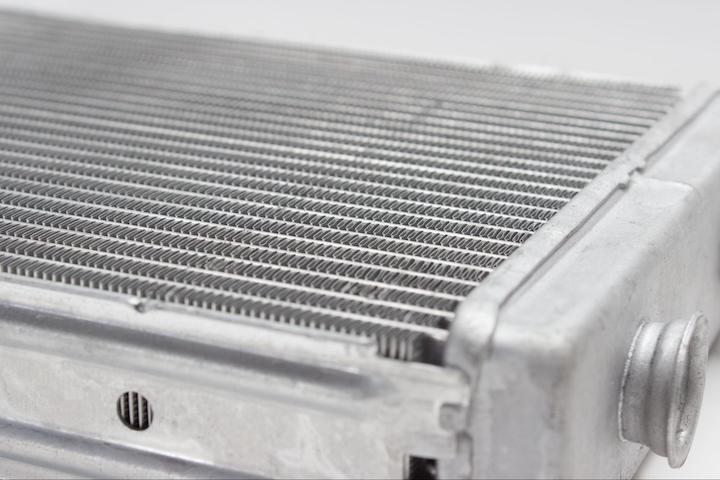Finest Practices for Upkeep and Applications in the Light Weight Aluminum Factory Field: A Thorough Introduction
Maintaining equipment in the light weight aluminum shop industry is necessary for operational success. Regular evaluations and anticipating maintenance can significantly lower downtime and improve safety and security. Advanced technologies, such as IoT and information analytics, play a pivotal function in this procedure. Comprehending the complete extent of best methods calls for a closer evaluation of certain strategies and their impacts on effectiveness. What are the crucial components that contribute to a trusted maintenance framework?
Significance of Regular Upkeep in Light Weight Aluminum Foundries
Regular upkeep plays an important function in the effective procedure of light weight aluminum factories. By methodically inspecting and servicing devices, factories ensure peak performance and long life of equipment. Normal upkeep tasks, such as cleansing, lubrication, and element replacement, aid avoid unexpected break downs that can lead to expensive downtime.
Routine checks enhance workplace safety and security by recognizing prospective hazards prior to they intensify into serious concerns. Devices that is well-maintained runs better, leading to boosted product quality and minimized waste. Furthermore, adherence to an organized upkeep schedule can sustain compliance with sector policies, therefore promoting a credibility for reliability and high quality within the market.
Carrying Out Predictive Maintenance Strategies
Anticipating upkeep techniques take the concepts of routine upkeep an action even more by leveraging information analytics and advanced tracking technologies. In aluminum shops, these techniques make it possible for operators to expect tools failings before they happen, therefore decreasing unexpected downtimes and enhancing operational performance. By making use of sensors and IoT gadgets, real-time information can be accumulated on machine performance, enabling the recognition of potential problems with anticipating analytics.
Optimizing Melting and Pouring Processes
Effective melting and putting procedures are essential for making best use of productivity and ensuring the high quality of light weight aluminum spreadings. To improve these procedures, shops need to concentrate on precise temperature control during melting, as this directly affects the metallurgical residential properties of the alloy. Making use of innovative melting modern technologies, such as induction and resistance melting, can boost power performance and lower cycle times.
Implementing automated pouring systems minimizes human error and maintains uniformity in the putting process. Proper mold prep work, including sufficient preheating, is important to avoid thermal shock and improve mold and mildew long life.

Enhancing Safety Protocols in Factory Workflow
Focusing on security in light informative post weight aluminum shop procedures is essential for protecting workers and guaranteeing a productive setting. Effective safety protocols include regular training sessions that stress the importance of individual safety tools (PPE), such as goggles, gloves, and headgears. In addition, the their explanation facility of clear emergency procedures is essential in managing possible mishaps.
Routine inspections of equipment and equipment assistance identify threats before they escalate right into major issues. Applying a durable reporting system urges workers to communicate safety and security worries without fear of consequence. Promoting a culture of security guarantees that every worker understands their duty in preserving a secure office.
Furthermore, assuring proper air flow and surveillance air quality can minimize exposure to dangerous fumes and dust. By strengthening these techniques, aluminum factories can substantially decrease the danger of crashes and create a setting where staff members feel valued and risk-free, eventually boosting overall operational effectiveness.
Leveraging Modern Technology for Improved Efficiency
Utilizing advanced modern technology has actually come to be significantly necessary for aluminum foundries intending to boost operational efficiency. Automation and robotics play an essential duty in enhancing production procedures, lowering labor expenses, and minimizing human mistake. Carrying out real-time monitoring systems enables the constant assessment of tools performance, making it possible for proactive upkeep and minimizing downtime.
Furthermore, the assimilation of data analytics provides useful insights right into functional process, facilitating much better decision-making and source allowance. As an example, predictive analytics can recognize potential failings before they occur, additional maximizing upkeep routines.
Additionally, adopting sophisticated melting and spreading technologies improves energy performance and product return, which are fundamental for sustainability in the market. By accepting these technical innovations, aluminum foundries can not only increase efficiency however additionally keep an affordable side in an increasingly demanding market (aluminum metal casting). Ultimately, leveraging technology is critical in driving advancement and improving general operational efficiency within the market

Frequently Asked Concerns
What Prevail Signs of Tools Wear in Light Weight Aluminum Foundries?
Typical indicators of devices wear in aluminum factories consist of unusual sounds, reduced performance, increased vibration, overheating components, leakages, and visible deterioration. These indicators often indicate the demand for maintenance or possible replacement to prevent pricey downtime.
Exactly How Can I Train Team for Effective Maintenance Practices?
To train team for effective maintenance techniques, one can execute hands-on workshops, establish thorough handbooks, urge mentorship programs, and conduct routine analyses to evaluate skills and understanding, making certain all employees comprehend upkeep methods thoroughly.
What Are the Environmental Laws for Light Weight Aluminum Foundries?
Light weight aluminum shops are subject to various environmental guidelines, consisting of exhausts control, waste management, and resource conservation. Compliance assurances very little environmental effect, advertising sustainability while sticking to neighborhood, nationwide, and global ecological criteria and regulations.
How Do Foundries Take Care Of Waste and Recycling of Light weight aluminum?
Shops take care of waste and recycling by implementing systems for collecting scrap aluminum, utilizing advanced splitting up modern technologies, and teaming up with reusing centers to ensure effective healing processes, thus reducing environmental influence and advertising sustainability within the sector.
What Are the Costs Associated With Implementing Advanced Technologies?
Implementing Read Full Article innovative innovations in factories incurs substantial prices, including initial financial investment, training, and upkeep costs. The long-term advantages, such as boosted efficiency and lowered waste, typically justify these expenses, leading to improved productivity. (aluminum metal casting)
